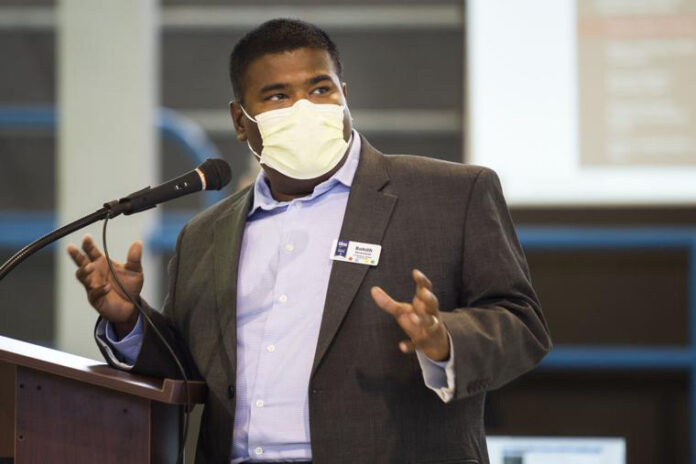CDC data shows that COVID positivity rates in Ector and Midland Counties have risen to more than 42% during the last seven days.
Ector County’s positivity rate is at 42.91% — an increase of 11.17% — while Midland County’s positivity rate is 45.78% as it rose by 8.61%.
During those seven days, COVID numbers in Ector County reached 2,029, while Midland County was at 2,989. The Midland County COVID numbers were provided by the City of Midland Health Department.
“It’s safe to assume that the increase in number of hospitalizations is a direct reflection of the increase in positivity rate in the community,” Odessa Regional Medical Center Chief of Staff Dr. Rohith Saravanan said during a phone interview. “We can see we have a very high positivity rate.”
Midland Memorial Hospital held a Zoom conference on Tuesday morning about COVID numbers increasing.
MMH President and CEO Russell Meyers said there were 88 COVID patients at Midland Memorial Hospital. Meyers also said 70% of the COVID patients are unvaccinated, while 6% had a booster.
“At 30%, that’s about the highest percentage of vaccinated people we’ve seen in a while,” Meyers said. “For the first time, we look close at who had a booster shot and of those inpatients only 6% have had a booster.”
Saravanan and Meyers each said the cause of the uptick of COVID patients is due to the Omicron variant. Saravanan said at ORMC there were between 5 and 10 patients with COVID in the hospital in November and December, but that number has doubled during the last two weeks.
Meyers explained the transmissibility of Omicron has been much higher than it was with the Delta variant. Meyers also said that he doesn’t have the data to prove it’s the Omicron variant passing through Midland County but he said all signs point to that being the case.
“We can’t prove that in Midland,” Meyers said about the dominant variant being Omicron. “The only way that variants are identified is by sending samples to a state lab. That state lab is now two months behind in getting results. We just got results from Nov. 1.
“We aren’t going to get current data on which variant we are dealing with but all indications are that we should assume that it’s the Omicron variant and act accordingly and we are doing so.”
Saravanan said during the course of the last two years that the world has been battling COVID that the medical community has found proven methods to slow the spread and limit its effects.
The first of those methods is masking, while the second is being vaccinated.
“There are a few things in our arsenal that we have that we didn’t have when this first showed up,” Saravanan said. “The spread of respiratory illness can be slowed down dramatically by using proper protection — facemask is a prime example of that. Vaccination prevents the severity of COVID. Through the Delta variant, we found that vaccinated people don’t get sick as much. Through Omicron, we are seeing vaccinated people can get sick but vaccinated people mostly aren’t being hospitalized.”




